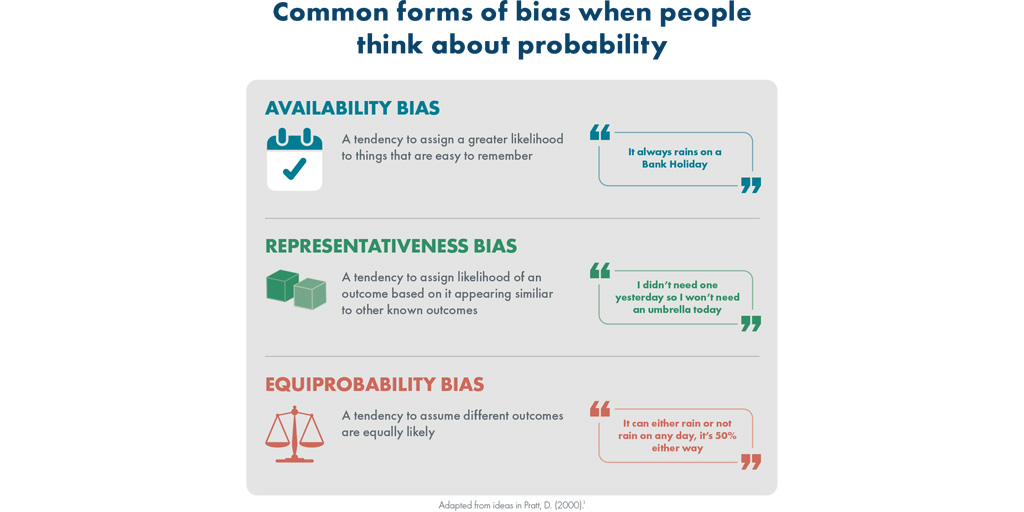28 June 2021

What does research suggest about teaching and learning early concepts of probability?
- It is important for students to learn using both theoretical and empirical aspects of probability, reasoning about short- and long-term behaviour
- Probabilistic reasoning depends on proportional reasoning, especially the flexible use of fractions and estimation
- Development of the important concept known as the law of large numbers is important; for example, students making and analysing short-, medium- and long-term predictions about probability situations
- Helping students get a sense of randomness in a variety of different task types, including categorising and creating random sequences, is suggested
- Tasks which focus on the concept of equalising or equivalence are also recommended as useful, as is the use of carefully designed technology tools
- It is useful for teachers to be aware of common biases, ambiguities in language and misconceptions around probability
View Espresso